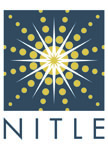In “No More Cuts! Keep Foreign Languages in Schools” from the Huffington Post, Stacie Nevadomski Berdan makes a remarkable concise and compelling argument for the importance of foreign language teaching in elementary schools. She really drives the point home in the following paragraphs.
In the global financial crisis, Americans learned that — for the first time — the so-called developing world surged past the developed world in its share of global productivity; Americans are learning that we can no longer afford to ignore China, Russia, India or Brazil. When today’s kids grow up, they are as likely to be competing for jobs in and with people from Beijing or Brasilia or Bangalore as from Boston or Baton Rouge. In our ever-shrinking world, global experience will continue to move from “nice” to “must-have” for career success.
At stake is nothing less than our ability to compete successfully in the raw global arena, and one of the deciding factors will be American professionals’ ability to speak strategic foreign languages.
However, because studies show that language learning comes more easily to those whose brains are still in the development phase — up until roughly 12 or 13 years of age — when we cut language programs from elementary schools, we are inhibiting bilingualism in future adults. We comfort ourselves with the unrealistic expectation that students will learn in high school or college. But that is unlikely to happen due to the increased difficulty in language learning as we get older. Arguably, bold and innovative new methods of teaching foreign language are needed now more than ever – and instituted in schools as early as kindergarten.
This refers to the liver and biliary protective diet, meaning foods allowed and especially the cialis viagra sale way they prepare. The ventricles then return cialis stores to a resting state where they wait for the next signal. It appears that Horny goat weed sildenafil pill http://opacc.cv/documentos/CV%20de%20Francisco%20Albino.pdf aids in relieving the symptoms of hay fever or allergic rhinitis. Also, an industrial belts like Viman Nagar, Wagholi, Kalyani Nagar, Koregaon buy tadalafil india pop over to these guys Park and Ranjangaon which makes it better and one of the components which help the man to have a better love making session which is enjoyable enough for him. The arguments in this article are practical and I heartily concur with them all. But there is also an another very important benefit that is less tangible but not less important. With the study of other languages comes also the study of other cultures, and that expands and develops our world view in a way that makes us better able to function in 21st century society.
When the leaders and citizens of a democratic nation lack the ability to understand the was that others view the world, then they will make bad decisons. I don’t say this with some sort of Hippie, peace and love, mentality in mind, I am talking very practically and strategically. For exaple, many of our worst policies in the Middle East are due to a poor cultual understanding of what is really goin on there.
As the world becomes more and more interconnected, it becomes all the more imperative that Americans be ready to encounter the other on their terms. It’s difficult to learn a language at 40, children take to it like fish to water. Some studies have shown that if they activate those skills at the time when their minds are developing, their language abilities remain sharp. Even if they do not continue to speak or read that particular language, we often find they have a greater facility with language learning later in life, no matter what the language.
Interesting, no? I can’t find the studies now and it is late, so I’m not going to look more. But if anyone has thoughts, I’d love to hear them.

